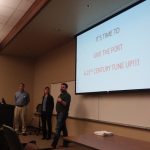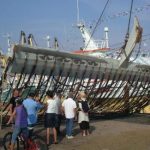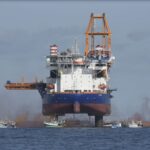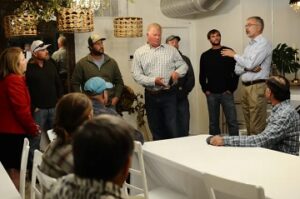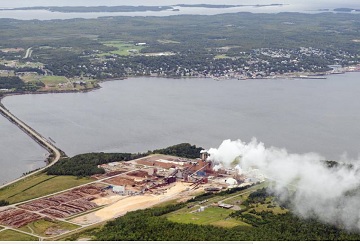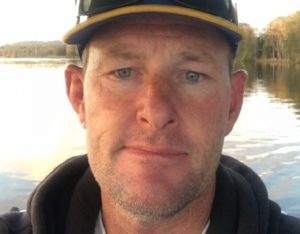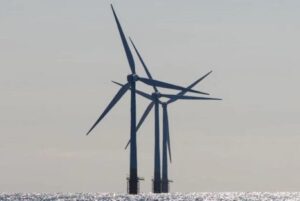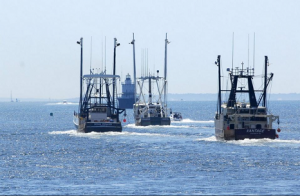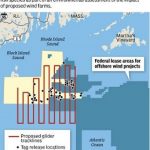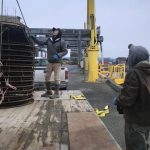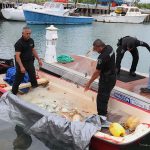Tag Archives: Faroe Islands
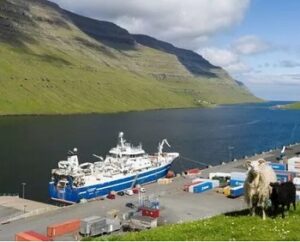
Anger as Faroe Islands renew fishery agreement with Russia
The Faroese granted Moscow the right to catch tens of thousands of tons of blue whiting in a special area shared with Britain despite the war in Ukraine. Ian Gatt, chief executive of the Scottish Pelagic Fishermen’s Association, said: “It is hugely disappointing, if not surprising, that Faroe has concluded a fisheries agreement for 2023 with Russia. The fishing industry spent months calling on the Government to pressure the island country – 200 miles north of Scotland – to maximise damage to Vladimir Putin’s war machine by banning his trawlers. >click to read< 09:12
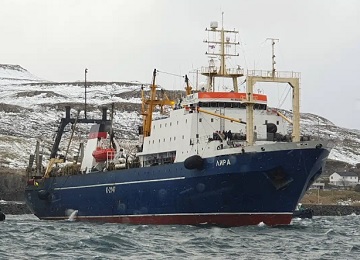
Nordic islands face pressure to end decades-old fishing deal with Russia
“There has to be consequences when a country attacks another country. So said the Faroese Social Democratic opposition party Javnaðarflokkurin in a statement to Courthouse News amid heated political debates on the Faroe Islands’ 45-year-old trade deal with Russia on mutual fishing quotas in the Nordic seas. The agreement allows Russian vessels to capture 100,000 tons of herring, mackerel and blue whiting close to Faroese shores in the Norwegian Sea annually, while Faroese fishermen get access to 25,000 tons of cod further north in the Barents Sea. >click to read< 08:04
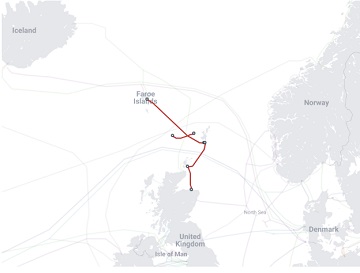
Fiber-optic Submarine Cable near Faroe and Shetland Islands Damaged; Mediterranean Cables also Cut
Last week the SHEFA-2 undersea cable linking the Faroe Islands to mainland Scotland via the Shetland and Orkney Islands was damaged in two separate incidents leaving much of the islands without internet connection. In the south of France three key subsea cables connecting the city of Marseille to Lyon, Milan, and Barcelona were purposely cut, the cable’s operator reported, impacting internet connectivity worldwide. While French authorities suspect an act of sabotage, their Scottish counterparts remain more cautious about what caused the damage to the cables. Similar to the Svalbard cable incidents, in which Russian fishing vessels passed repeatedly over the areas where the cables were located, police investigating the Faroe and Shetland incidents suggested that it was likely fishing vessels, which damaged the cables. >click to read< 09:19
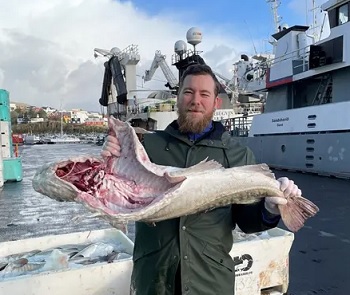
The Faroe Bank Cod: How a ‘mythical’ Faroes delicacy has vanished
The head chef at Barbara Fish House, one of four restaurants located in tiny wooden houses in Tórshavn, the Faroe Islands’ capital, Christensen was hosting what has become known as a “Bank evening”, because of the main dish. The Faroe Bank cod’s reputation is partly built on its size. It is huge: a three-year-old specimen is already twice as large, on average, as the Atlantic cod. But it is also legendary because of its rarity. A genetically distinctive member of the cod family, it was once plentiful before being nearly fished to extinction. In 2008, all commercial fishing of Faroe Bank cod was banned. Only the Faroe Marine Research Institute (Famri) is now allowed to catch them, when its researchers survey the fish population twice a year. >click to read< 11:05
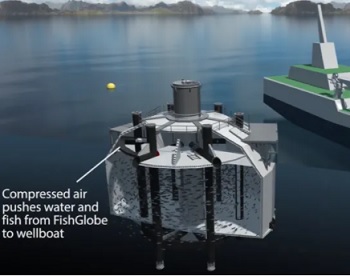
The last cowboys – a replay of the story of cattle in the American West
Norway, a country less than a quarter the size of Alaska, is on pace to bring 1.2 million tonnes of salmon to market this year, and the technologists in that country are talking about the potential to grow their production to 3 million tonnes per year by 2030. Chile, Scotland, the Faroe Islands, and Canada are all significant producers with lesser production in Australia, New Zealand, Iceland, France, Ireland and Finland. Meanwhile, land-based, recirculating aquaculture systems (RAS) farms are threatening to lead to an explosion in salmon aquaculture almost everywhere. To truly understand the threat these farmers pose to the future of one of Alaska’s oldest and still largest industries,,, >click to read< 08:52
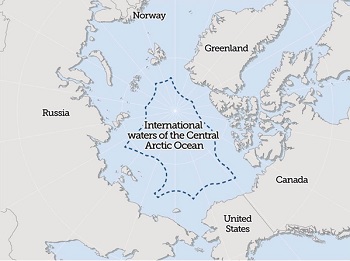
U.S. ratifies The Agreement to Prevent Unregulated High Seas Fisheries in the Central Arctic Ocean
The United States has become the fourth jurisdiction after Canada, the European Union and Russia to ratify a landmark international agreement that aims to prevent unregulated commercial fishery in the high seas of the Central Arctic Ocean, officials at the State Department announced Tuesday. The Agreement to Prevent Unregulated High Seas Fisheries in the Central Arctic Ocean, which was signed in Ilulissat, Greenland last October, includes the so-called Arctic Five – Canada, Norway, Russia, Denmark (Greenland and the Faroe Islands), the U.S. – as well as the major fishing nations – Iceland, Japan, South Korea, China and the EU. >click to read< 17:56
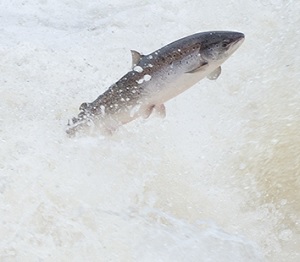
Conservation deal halts commercial salmon fishing in Greenland for 12 years
A deal has been reached that will halt commercial salmon fishing in Greenland and the Faroe Islands for the next 12 years to allow adult wild Atlantic salmon to return to rivers in Canada, the United States, and Europe. The coastal waters of Greenland and the Faroe Islands are critical feeding grounds for the salmon, and many come from endangered populations in rivers like the Saint John in New Brunswick and the Penobscot in Maine. “Significantly reducing the harvest of wild Atlantic salmon on their ocean feeding grounds is meaningful and decisive,” said Bill Taylor, president of the Atlantic Salmon Federation. >click to read<
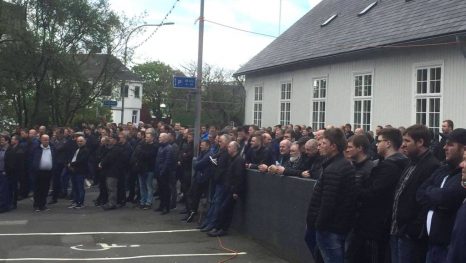
FAROE ISLANDS KEEP DAYS-AT-SEA INSTEAD OF QUOTAS
The Faroese Governments proposal to make relatively dramatic changes to the laws regulating fisheries in Faroe Islands will not go ahead. A proposal from the Government to adopt Quotas for the largest vessels in the Faroese fleet has been discussed in parliament however as there was no agreement on any aspects of the proposal it was dismissed by parliament.,,, The shelved Faroese government proposal was that larger vessels were to replace Days-at-Sea with Quotas. Absolutely no one within the Faroese fishing industry wanted to change from Days-at-Sea to a Quota system. The plan always intended that smaller boats out-with the above sizes would still operate under the current Days-at-Sea system.It was made very clear to the government that everybody in the fishing industry was angry at the proposal on quotas. click here to read the story 19:30
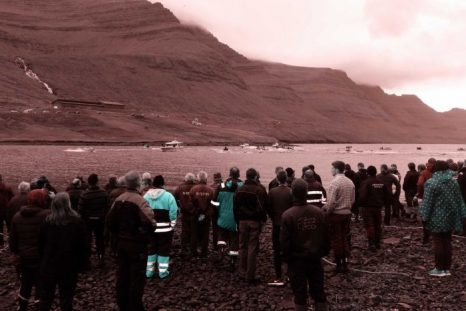
The Grind: Faroe Islands divided over whaling tradition
Residents of the Volcanic archipelago, located in the North Atlantic Ocean between Scotland and Iceland, call the hunt the Grind (pronounced to rhyme with “wind”). When the call is given, flotillas of boats set sail, herding pods of whales onto the beaches, where villagers wade through the water to kill them with lances. Yet whale meat has always been a staple of the Faroese diet: locals have historically consumed the meat and blubber to sustain themselves over the harsh winter months. Jens Mortan Rasmussen, one such whaler, believes that pilot whale is still an important and sustainable food source for the islands. “Everything you see at the supermarket is imported,” he said. “The meat that we eat at the supermarket, we barely know where that comes from. I need to kill about 2000 chickens for the life of one whale. “If you feel that you can eat a chicken and then say I can’t kill a whale, you’re a total hypocrite. Read the story here 11:07
Yes, I butcher whales. It’s certainly no worse than what happens in slaughterhouses
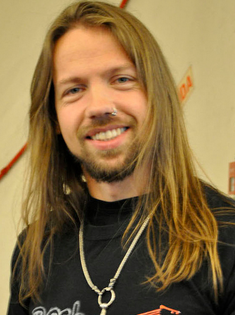 I ( Heri Joensen ) live in the Faroe Islands, where whaling has been part of our way of life for centuries. Last month, I was working on a long-finned pilot whale the day after it had been killed. Since more than four-fifths of the world’s population eats meat, I thought it would be fine to share such a picture — it’s no secret, surely, how meat is produced? But uproar followed. A campaign was launched to cancel my band’s (Týr) gigs and stop venues booking us. We seldom see pictures from inside slaughterhouses. As a result, people have strange ideas about meat — they seem to believe that animals are willingly and painlessly slaughtered behind closed doors. Ethically, I don’t see the difference between slaughtering wild whales and farmed cows. All animals suffer: if you can slaughter cows for meat, why not slaughter wildlife? Video, Read the story here 12:37
I ( Heri Joensen ) live in the Faroe Islands, where whaling has been part of our way of life for centuries. Last month, I was working on a long-finned pilot whale the day after it had been killed. Since more than four-fifths of the world’s population eats meat, I thought it would be fine to share such a picture — it’s no secret, surely, how meat is produced? But uproar followed. A campaign was launched to cancel my band’s (Týr) gigs and stop venues booking us. We seldom see pictures from inside slaughterhouses. As a result, people have strange ideas about meat — they seem to believe that animals are willingly and painlessly slaughtered behind closed doors. Ethically, I don’t see the difference between slaughtering wild whales and farmed cows. All animals suffer: if you can slaughter cows for meat, why not slaughter wildlife? Video, Read the story here 12:37
Fishermen are safe again in the Faroe Islands, while the Sea Shepherd Supports the Faroe Islands
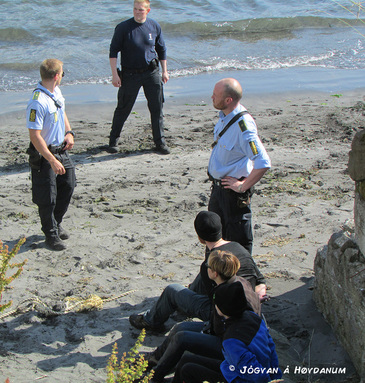 Landcrew ( over 100 volunteers) has paid over 600.000,00 danish kroners to get to Faroe Islands by plane – so faroese tourism is blooming once again – thanks to the Sea Shepherd. Records also show – that Sea Shepherd landcrew has used a lot of car rentals and houses and they have been in the Faroe haven’t been cheap, and we thank you for that, Sea Shepherd. And then Sea Shepherd also needs to pay up to Faroese government for all the big fines – they have been given for unlawfully interfering with the whaling. They didn’t save one single whale! Read the rest here 20:13
Landcrew ( over 100 volunteers) has paid over 600.000,00 danish kroners to get to Faroe Islands by plane – so faroese tourism is blooming once again – thanks to the Sea Shepherd. Records also show – that Sea Shepherd landcrew has used a lot of car rentals and houses and they have been in the Faroe haven’t been cheap, and we thank you for that, Sea Shepherd. And then Sea Shepherd also needs to pay up to Faroese government for all the big fines – they have been given for unlawfully interfering with the whaling. They didn’t save one single whale! Read the rest here 20:13
European Commission proposes fishing opportunities in the Atlantic and North Sea for 2015
 The European Commission has today proposed fishing opportunities for 2015 for the Atlantic and the North Sea. This is the annual proposal for the amount of fish which can be caught by EU fishermen from the main commercial fish stocks next year and it is for the first time based on the new Common Fisheries Policy (CFP). Read the rest here 11:31
The European Commission has today proposed fishing opportunities for 2015 for the Atlantic and the North Sea. This is the annual proposal for the amount of fish which can be caught by EU fishermen from the main commercial fish stocks next year and it is for the first time based on the new Common Fisheries Policy (CFP). Read the rest here 11:31
Sea Shepherd extremists arrested, vessels seized after interfering with grindadráp
 The hunts, also called grindadráp (or grinds) are community-based events which are protected by the local police and the Danish Navy. Even Grindaformenn, or the men in charge of organizing the hunt are allowed to remove interlopers. On Saturday, activists’ attempts at stopping the hunt had failed. Read the rest here 22:23
The hunts, also called grindadráp (or grinds) are community-based events which are protected by the local police and the Danish Navy. Even Grindaformenn, or the men in charge of organizing the hunt are allowed to remove interlopers. On Saturday, activists’ attempts at stopping the hunt had failed. Read the rest here 22:23

































